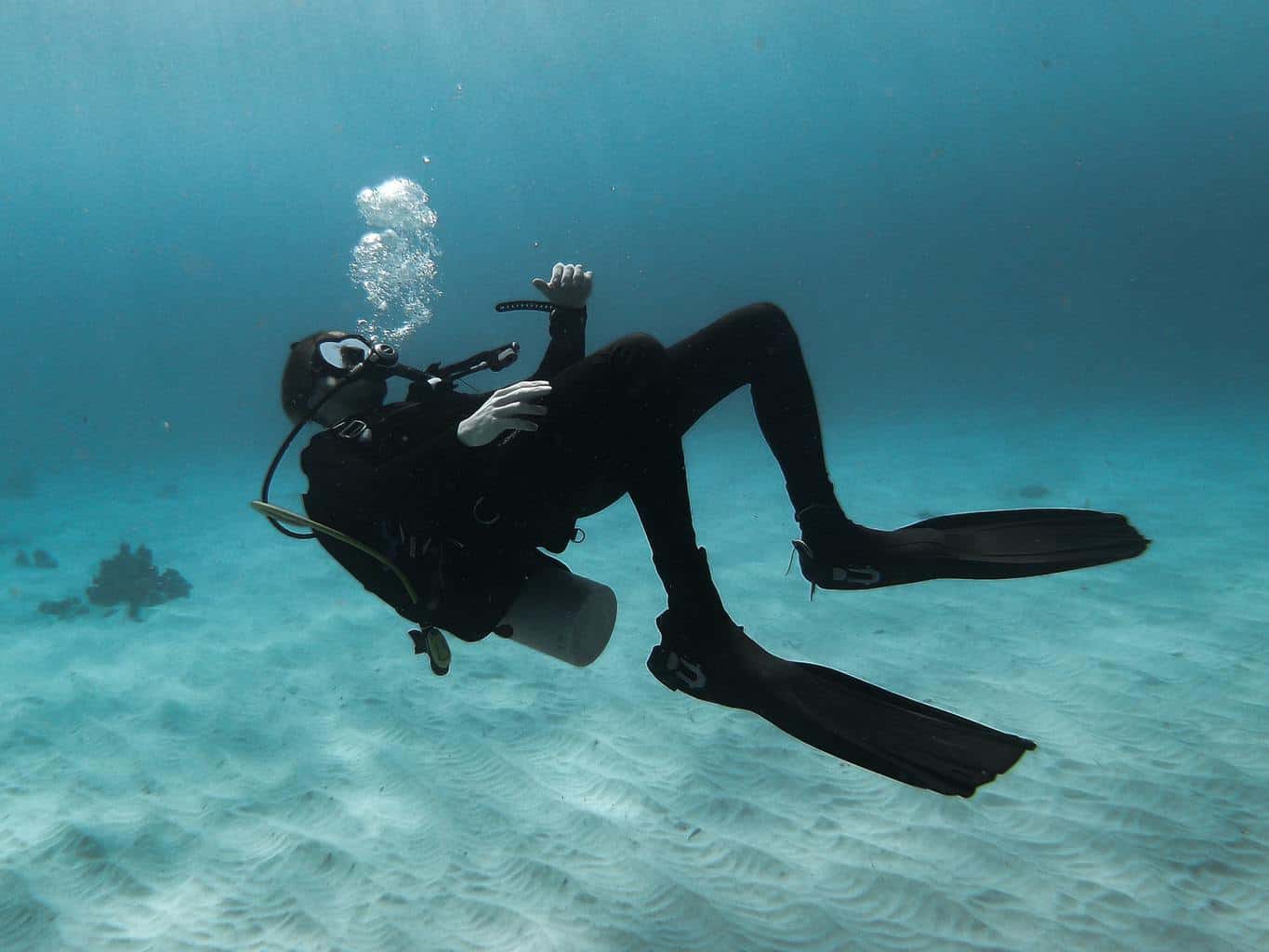What springs to mind when you think about the benefits of scuba diving?
Maybe it’s getting away from it all, floating freely underwater and being at one with nature?
Perhaps it’s traveling to new places for adventure and excitement?
But can a good workout be a benefit of scuba diving?
While it might not be the main aim for most divers, this article will demonstrate that scuba diving can be good exercise, giving participants both a physical and a mental well-being workout.
- Is Scuba Diving Physically Demanding?
- How Many Calories Do You Burn While Scuba Diving?
- Can Scuba Diving Help Lose Weight?
- How Can Scuba Diving Benefit Mental Well-Being and Stress?
- How Do I Get in Shape to Scuba Dive?
- Conclusion
- You Might Also Like…
Disclosure: this post contains affiliate links (clearly marked with ), which means we may earn a commission if you buy something through them, at no additional cost to you.
Is Scuba Diving Physically Demanding?
According to PADI communications director Theresa Kaplan:
“Scuba diving provides a full-body workout that combines cardio and strength training to burn calories, tone muscles and even improve breathing.
Maneuvering through water requires constant motion by your entire body, thus toning and strengthening muscles in your thighs, shoulders, and your core.”
That all sounds potentially like a lot of hard work, doesn’t it?
We think that they might be overstating it a bit and making diving sound rather more demanding than it is typically.
However, while we see diving as a relatively relaxed activity, several factors can actually combine to give you effective physical exercise.
We will also see that being in generally good shape beforehand will pay dividends to your diving enjoyment.
A Workout Before You’ve Even Started
To start with, lifting scuba tanks, diving weights, getting your equipment ready, and getting yourself in and out of the water is a strength workout in itself.
A full set of scuba equipment can weigh around 25 kg / 55 pounds depending on the type of tank and how much lead you need on your weight belt.
Carrying all this can undoubtedly work out your core and legs, especially if there’s a long walk to and from the dive entry point.
So lifting and carrying the kit can soon build up the muscles and improve tone.
Reasonable care should be taken lifting and moving scuba equipment to avoid overstraining and injury.
Working Out Underwater
Because water is far denser and hence more resistant to your movement than air, there is a continuous, low impact resistance workout from any movement in the water that the diver makes.
Exactly how much of a workout you get underwater will depend on how much you’re moving and the dive conditions.
Swimming against the current will use more energy than a gentle bimble around a relaxed in-shore reef.
The aim of the dive you are making will also affect the amount of energy you spend.
For example, a dive spent taking photos all in one area will use significantly less energy than one spent swimming around with dolphins.
Throughout an hour dive in average conditions, just general movement can add up to be pretty significant.
Throw in some current to swim against or some excitement from a wildlife encounter, and it’s possible to get the heart really pumping down there.
Experience Matters
Experience level will play a part in how much of a workout the dive is.
A less experienced diver will often use far more energy, for example, in currents, than a diver with experience and the right techniques.
Finning underwater will give the experienced diver whose kick comes from the hips rather than the knees, an effective workout to the core, glute, leg, and back muscles.
Experience allows the diver to pace themselves against the current and use their practiced finning techniques to move efficiently and make progress slowly but steadily.
They can become less tired and use their gas supply more efficiently to have a longer dive.
Impact of Water Temperature
One often-overlooked factor of diving as exercise is the effects that the water has on your body temperature.
Water conducts heat away from your body 20 times faster than air does.
Even when diving in warm water, the body has to work harder to maintain the core temperature than it would do in the air.
Metabolism increases accordingly, and so fat is burnt at an increased rate than it would be for the equivalent activity on land.
While getting cold underwater is not a good thing, the cooling effects of water during your dive will contribute to increased energy usage and can increase fat burn and potential weight loss.
How Many Calories Do You Burn While Scuba Diving?
We’ve looked at some of the ways we can exert while diving, so let’s get down to some actual science and try and work out how much energy is used and see how diving compares to other activities.
The 2011 Compendium of Physical Activity by the American College of Sports Medicine rates physical activities in units of ”Metabolic Equivalents of Task” (METS).
Scuba Diving is rated as having an average level of 7 METS.
“Moderate” diving has 11.8 METS, while “Fast” diving has 15.8 METS.
To give some comparison, we can look at other everyday activities:
- Rest, sitting quietly, 1 MET. Approximately 1 kcal/kg/hour.
- Swimming moderately to hard rates at 8 to 11 METS.
- Jogging is 9.9 to 11.2 METS.
It is possible to calculate the calories burnt during an activity by multiplying a person’s weight in kg by the activities MET figure.
As an example, we can take an average American male weighing 198 lbs ( 90 kg) and the average diving figure of 7 METS:
90 kg x 7 METS = 630 calories per hour
Of course, this figure is going to vary based on the level of activity that a diver is carrying out and other factors, including their experience level.
An experienced diver effortlessly gliding along a reef wall on a drift dive will undoubtedly expend less effort than a beginner swimming in colder water against a strong current.
Although there are variables, it does give us a guide and an idea of how diving compares to other sporting activities.
PADI says that:
“An average shore dive can burn 600 calories per hour, about the same as jogging. Warm-water boat dives burn, on average 300 calories per hour, the equivalent to a brisk walk.
While the actual calorie burn is dependent on exertion, temperature, and diver experience, most people given a choice will likely prefer an hour dive to the same time spent jogging!
Can Scuba Diving Help Lose Weight?
As we’ve just seen, scuba diving burns calories at a rate similar to an activity like jogging.
So surely it can help lose weight?
Well, maybe, but we have to remember that diving often goes hand in hand with relaxing and being on holiday.
Holidays are usually going to mean chilling out. We might be sunbathing for an hour or two between dives. We’re going to be generally winding down when not diving.
We could also be eating and perhaps drinking a little more than usual on holiday, so we shouldn’t rely on diving to reduce our weight if other things aren’t equal.
On a hardcore diving safari holiday where you do three or four dives a day every day, you could perhaps expect to see weight loss from the activity directly.
But for the diver either on a relaxed holiday or just doing some occasional diving at home, it is unlikely that scuba alone will show a significant weight loss effect.
Remember that losing weight is all about adjusting your energy balance. You need to use more energy than you take in.
We can say that combined with other exercises and a balanced diet; scuba diving can play its part in weight loss.
How Can Scuba Diving Benefit Mental Well-Being and Stress?
One benefit often mentioned by divers is the relaxation and feelings of stress relief that the activity brings.
You’ll often hear being underwater referred to as the divers “Happy Place.”
Being underwater gives a chance to escape daily life pressures and be away from work, the phone, and the internet.
The mental focus on controlling buoyancy and movement underwater gives many an almost meditative relaxation.
Significant stress relief can be found floating freely in a 360-degree environment and being at one with and experiencing nature for yourself.
Scuba diving is clearly an excellent mental exercise for relaxation and mindful stress relief.
How Do I Get in Shape to Scuba Dive?
While scuba diving can provide exercise itself, every diver must maintain general health and fitness levels to be safe and comfortable in the water.
Good heart and lung fitness are extremely important underwater, so general cardio exercise is the best place to start, such as jogging or cycling.
Remember to stretch, warm-up, and cool down properly too.
Moving smoothly and in control underwater depends on a good finning technique, which needs a wide range of leg movement.
Toning and stretching exercises such as yoga or pilates can greatly help divers improve leg strength and range of motion.
Yoga and meditation can also help develop your breathing techniques, promote calm and relaxation, and can even reduce your gas consumption on a dive.
As we’ve mentioned, the scuba equipment can be heavy to carry, and so some light gym exercises can be a good idea.
Exercises to improve core, back, and leg strength are ideal for helping make carrying the kit easier and also assist your movements underwater be less tiring.
Don’t forget the upper body also for help climbing up those boat ladders.
Exercises that would be useful might include:
- Planks
- Squats
- Lunges
- Pushups
- Leg Raises
- Deadlifts
Consult with a certified trainer at your gym as to what you should focus on and, of course, seek medical advice if you have any concerns before carrying out any training.
Conclusion
Scuba diving can benefit not just your physical health as a useful exercise but also your mental well-being.
Together with a sensible general lifestyle and fitness regime, scuba diving can burn calories and tone and strengthen your body and provide an excellent method of escape from the stresses of daily life.
Diving – It’s more enjoyable than jogging for many people!
You Might Also Like…
-

How Do Scuba Divers Drink Water? 5 Possible Ways (+7 Tips)
-

How Long Can Scuba Divers Stay Underwater? (+9 Limiting Factors)
-
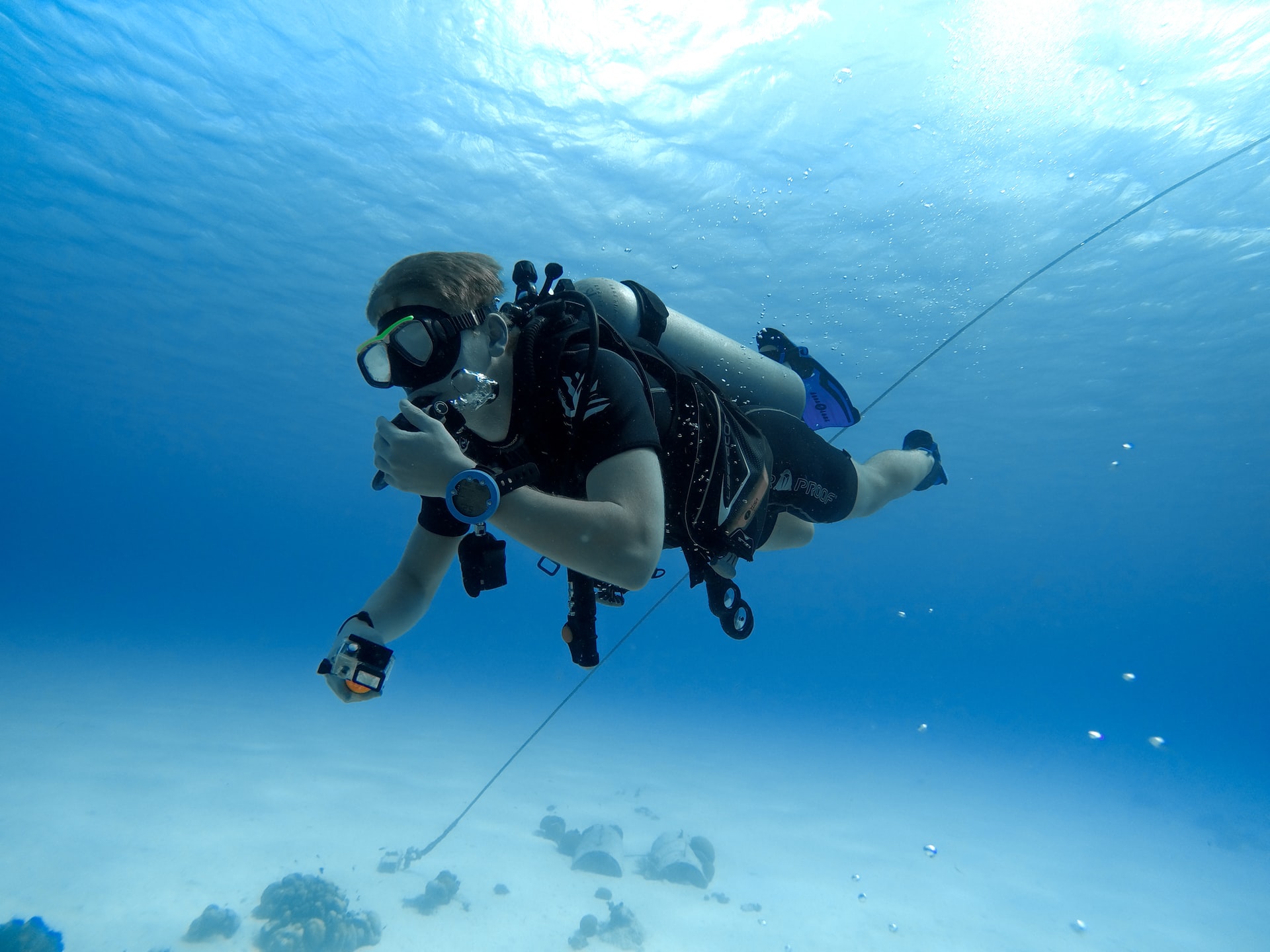
Are Scuba Divers Athletes? All the Facts (+New Competitive Forms)
-
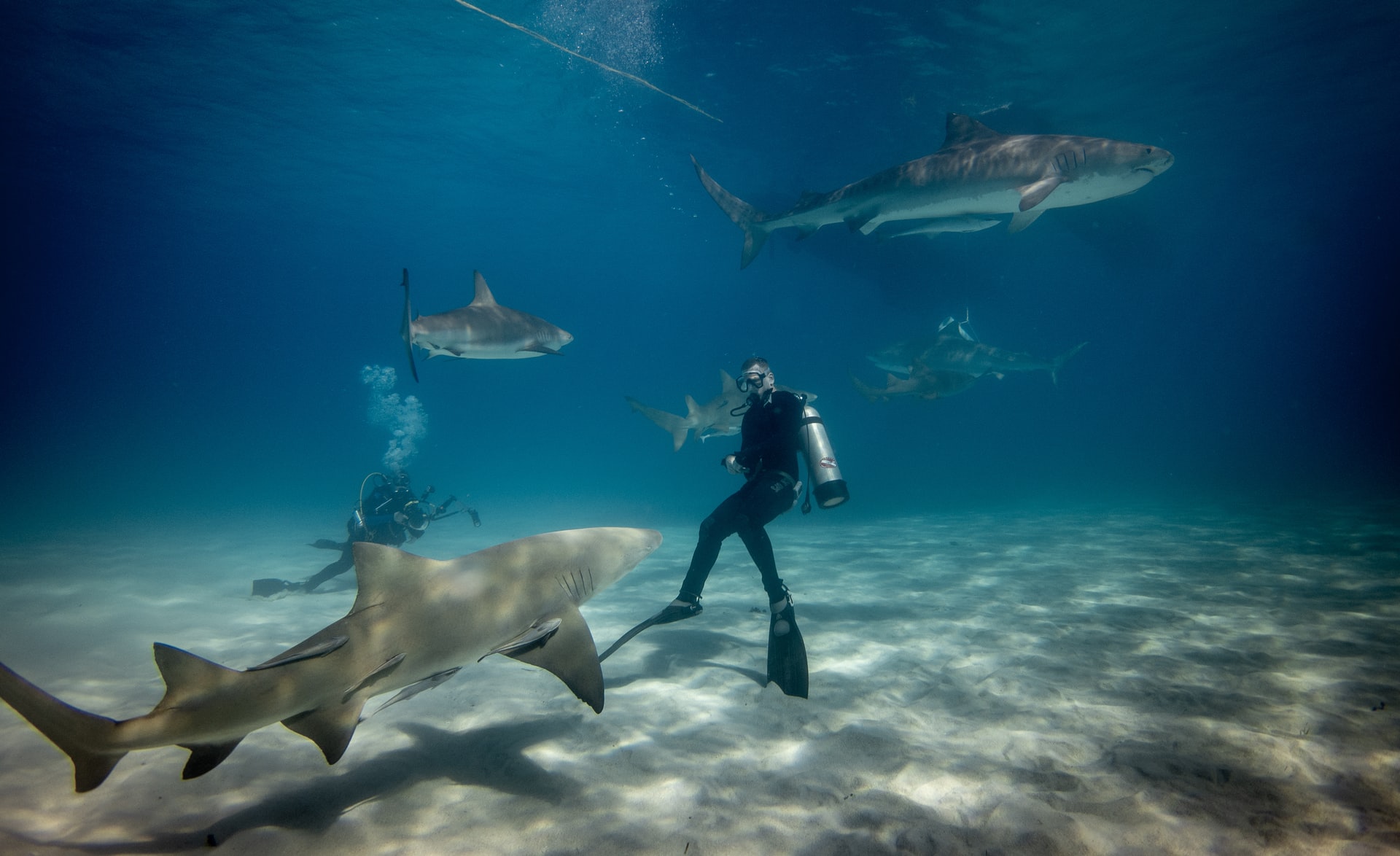
Are Sharks Scared of Scuba Divers? (What Every Diver Must Know)
-
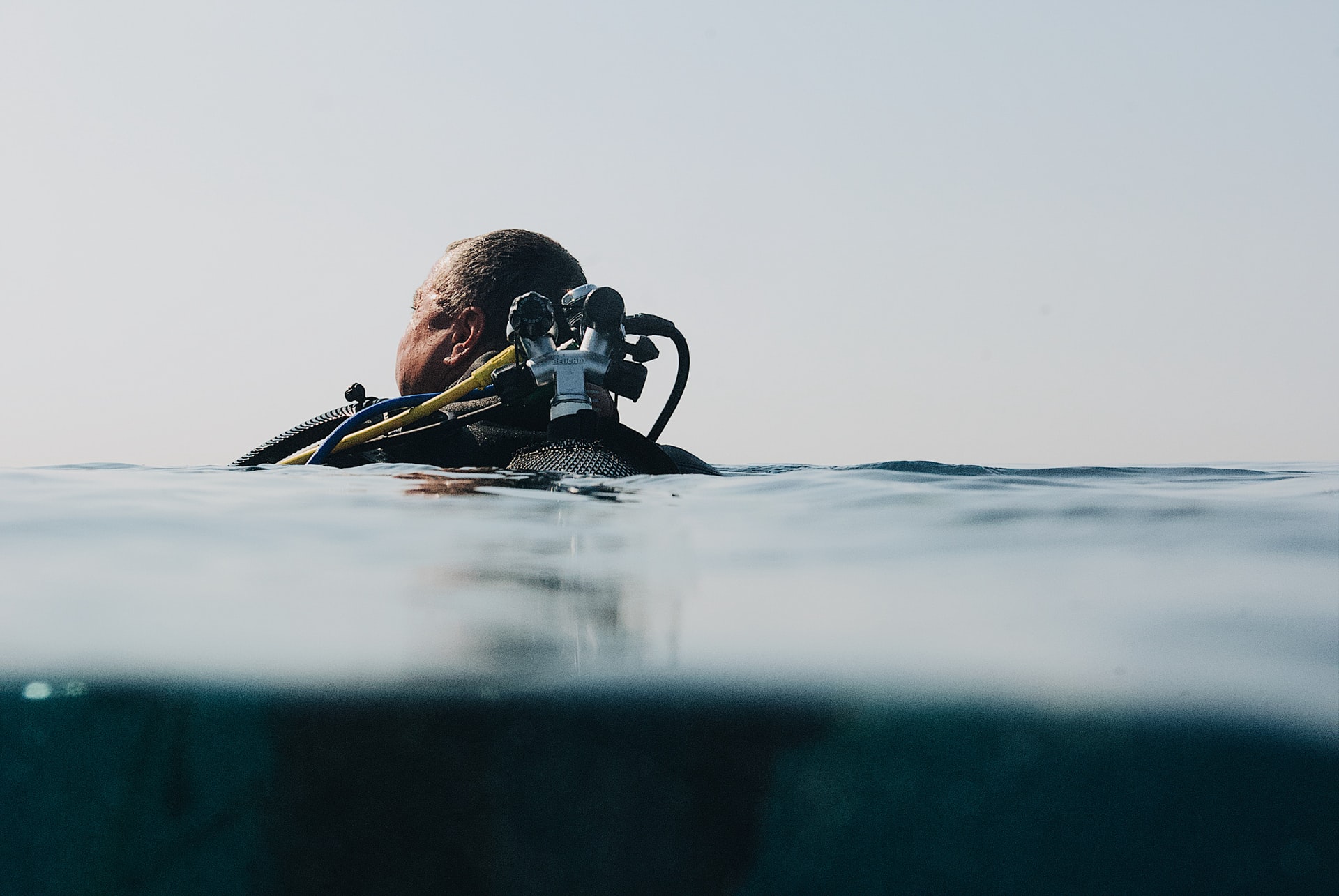
Who Should Not Scuba Dive? 17 Reasons (Every Diver Should Know)
-
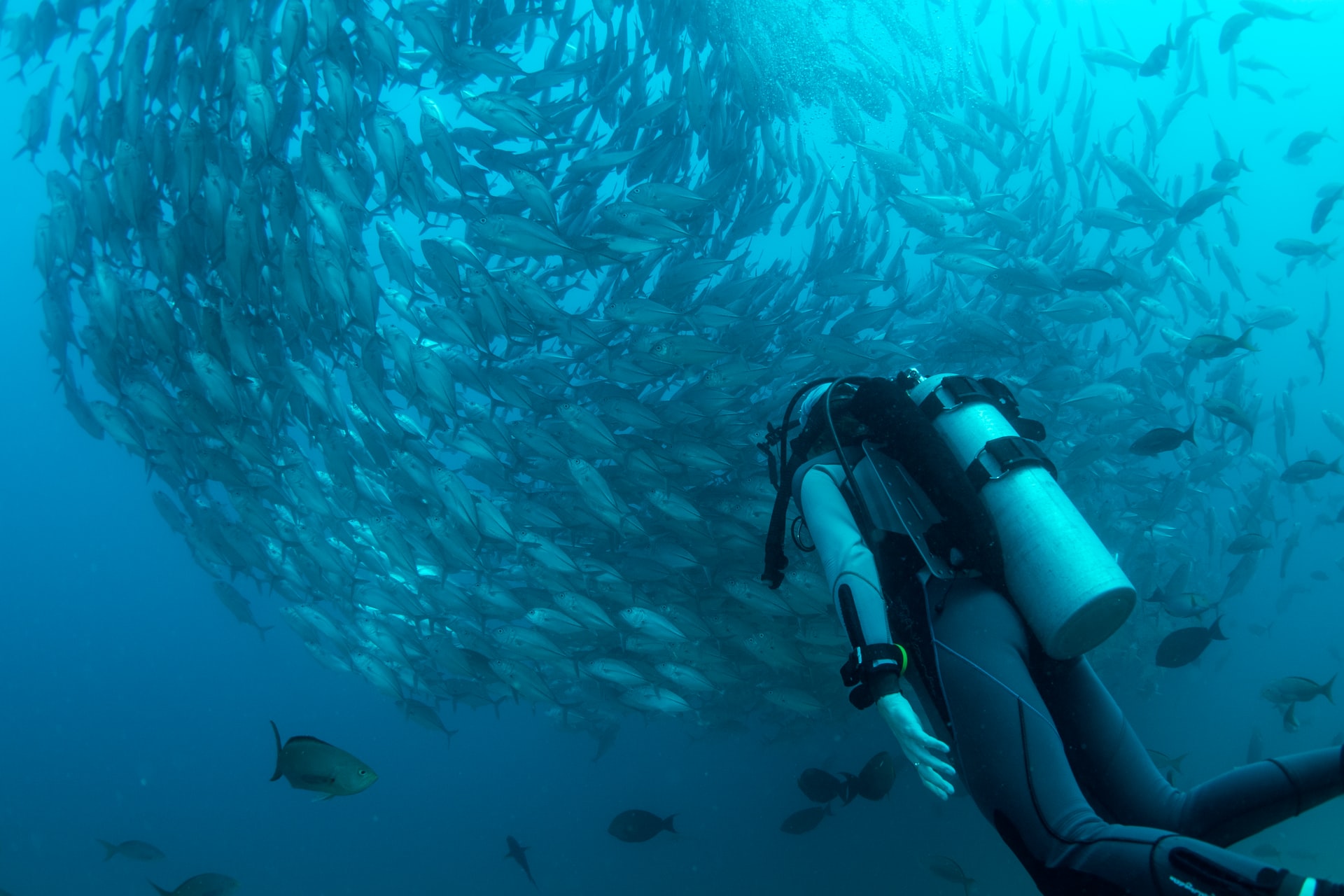
Should I Be Scared of Scuba Diving? 8 Common Fears (Debunked)
-
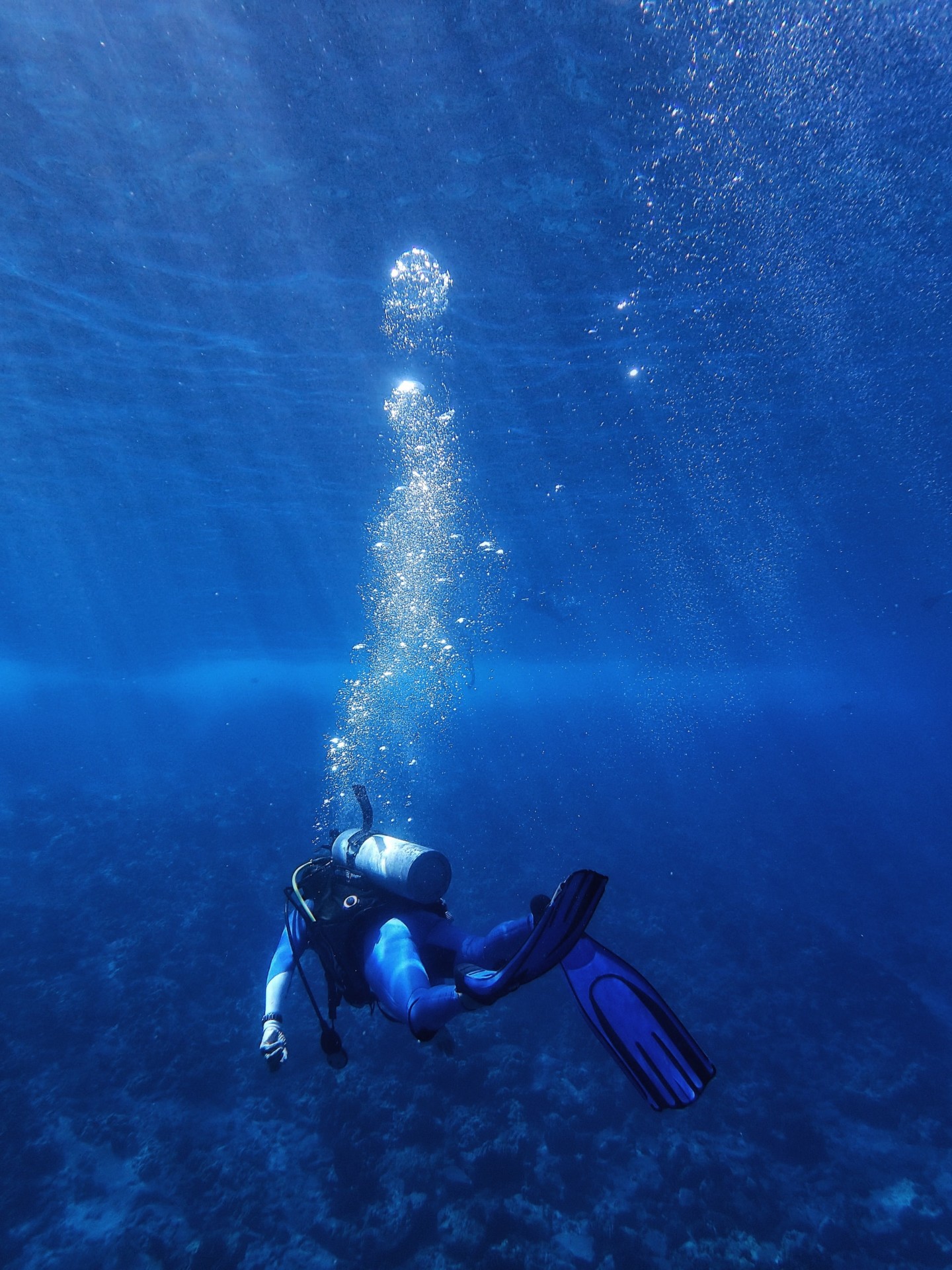
Why Do Scuba Divers Use More Air at Depth? (+4 Practical Tips)
-
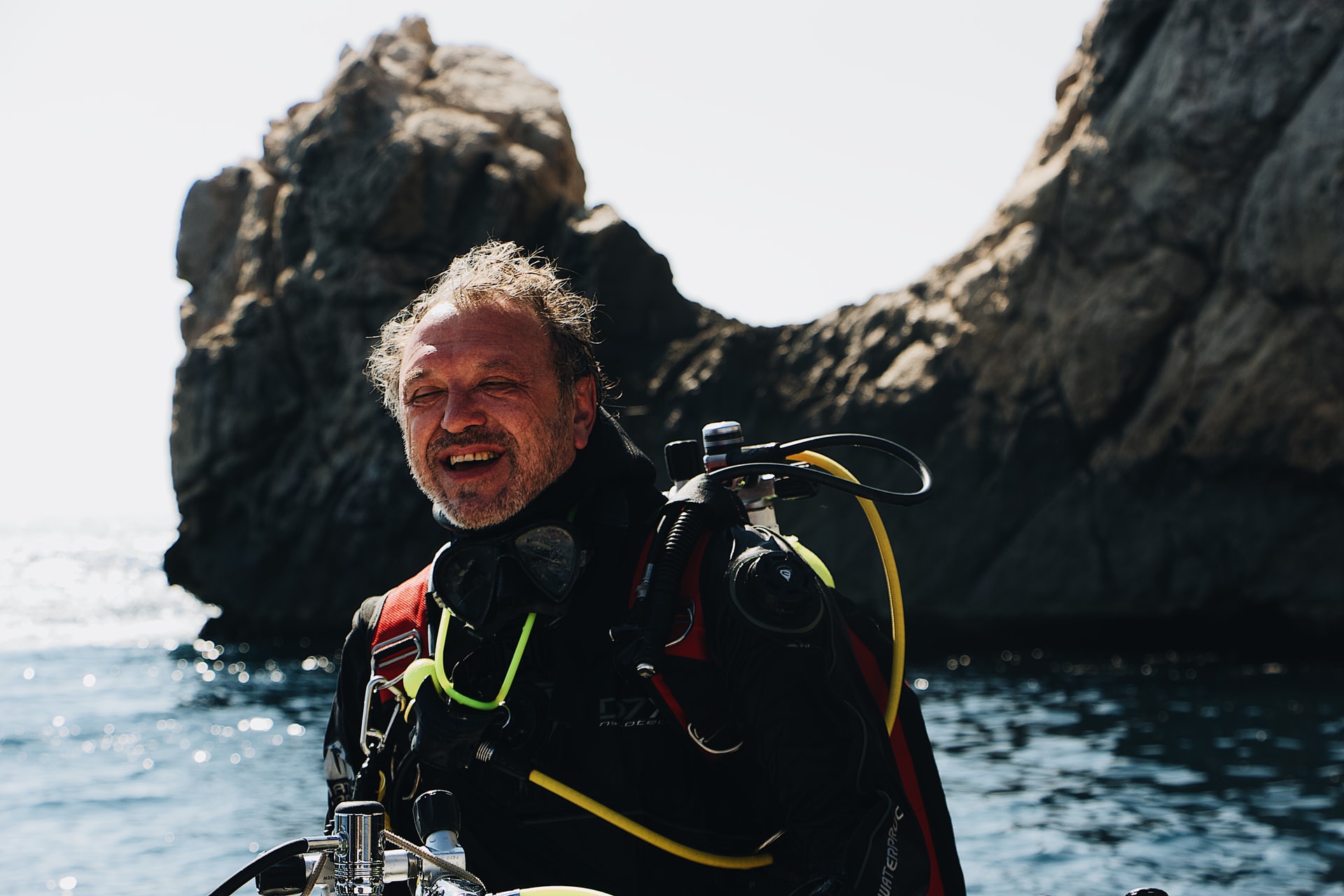
At What Age Should You Stop Scuba Diving? (+9 Tips for Older Divers)
-
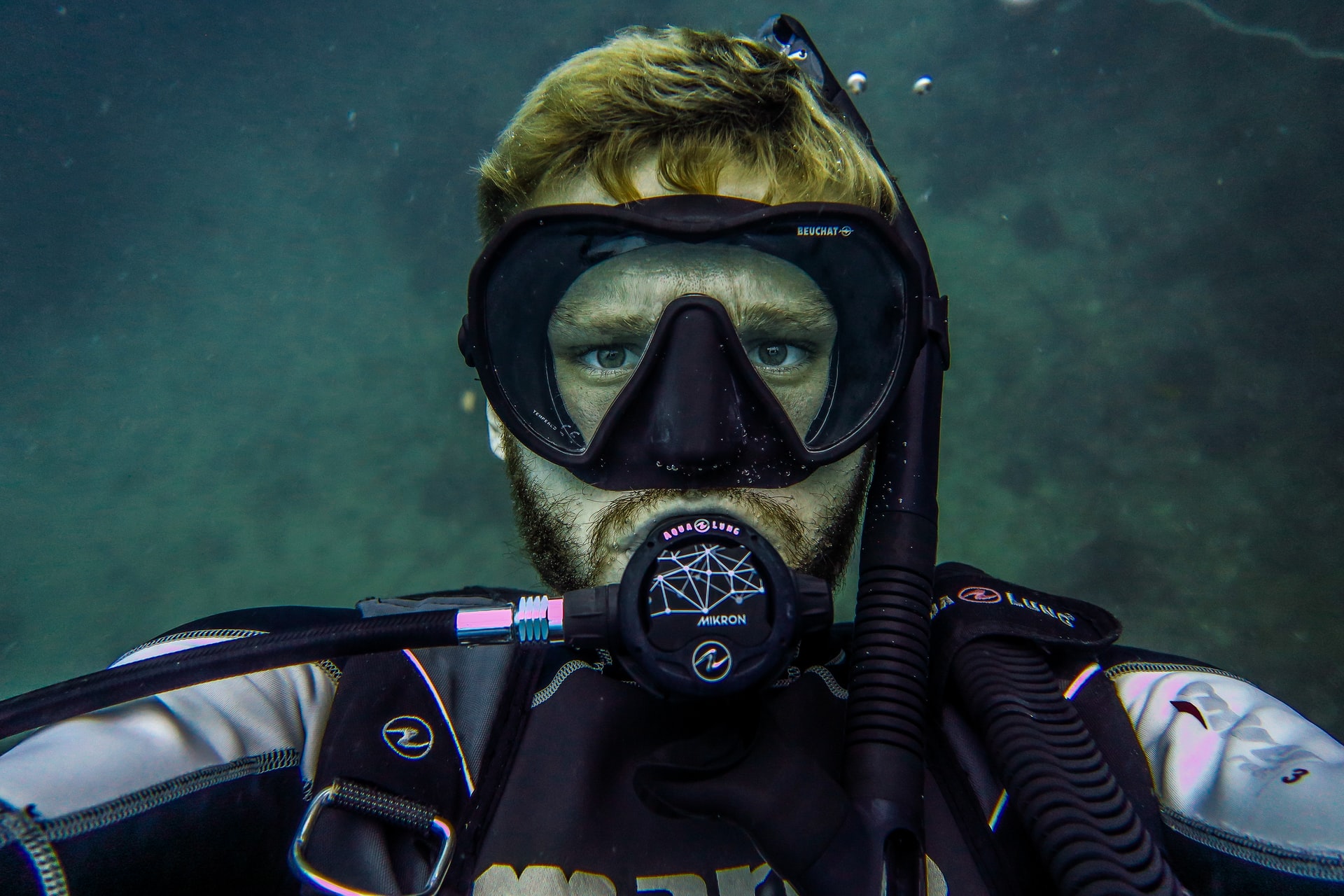
Should I Shave Before Scuba Diving? Crucial Facts (+9 Helpful Tips)
-
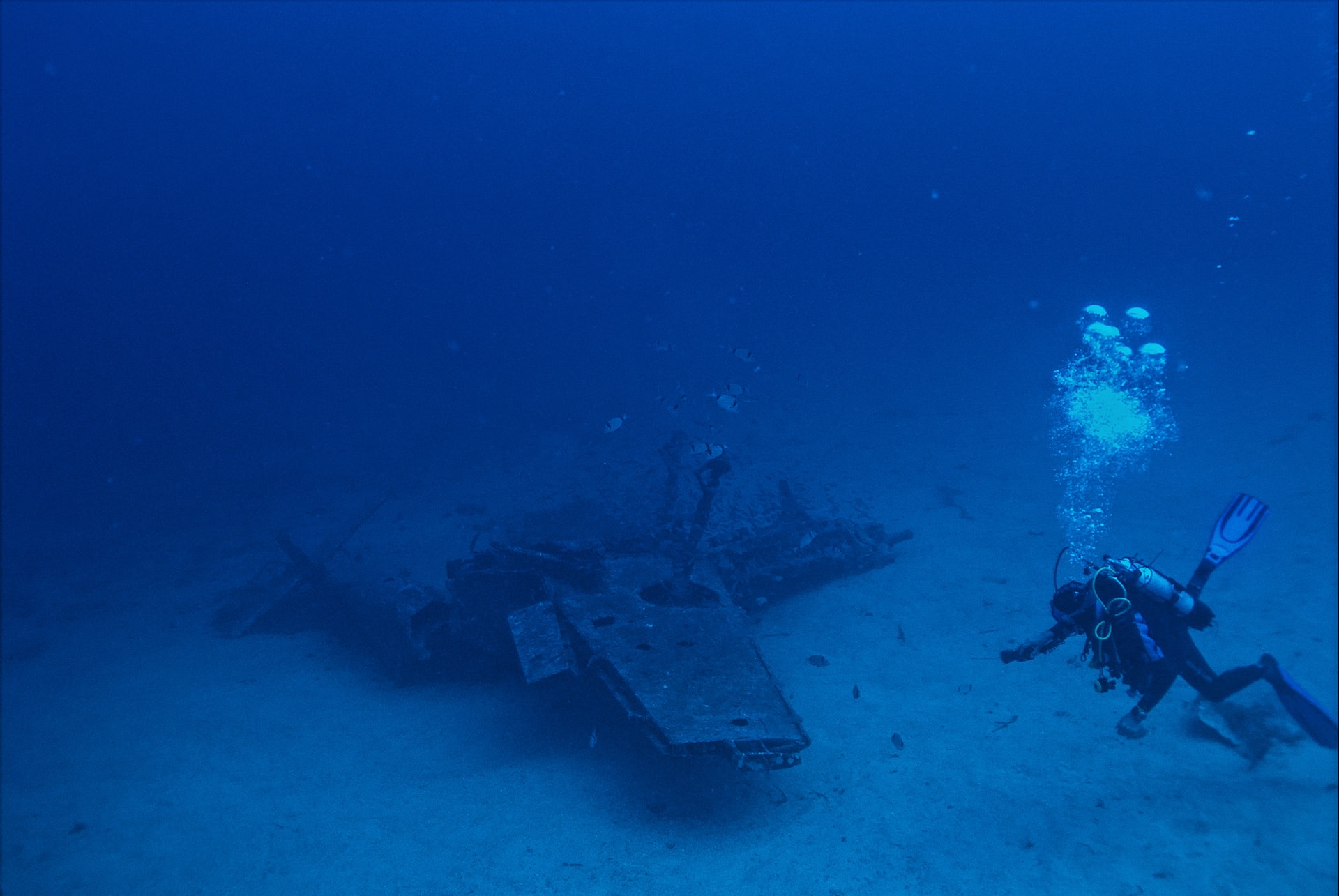
Why Do Scuba Divers Use Helium? (+Its Pros & Cons)
-
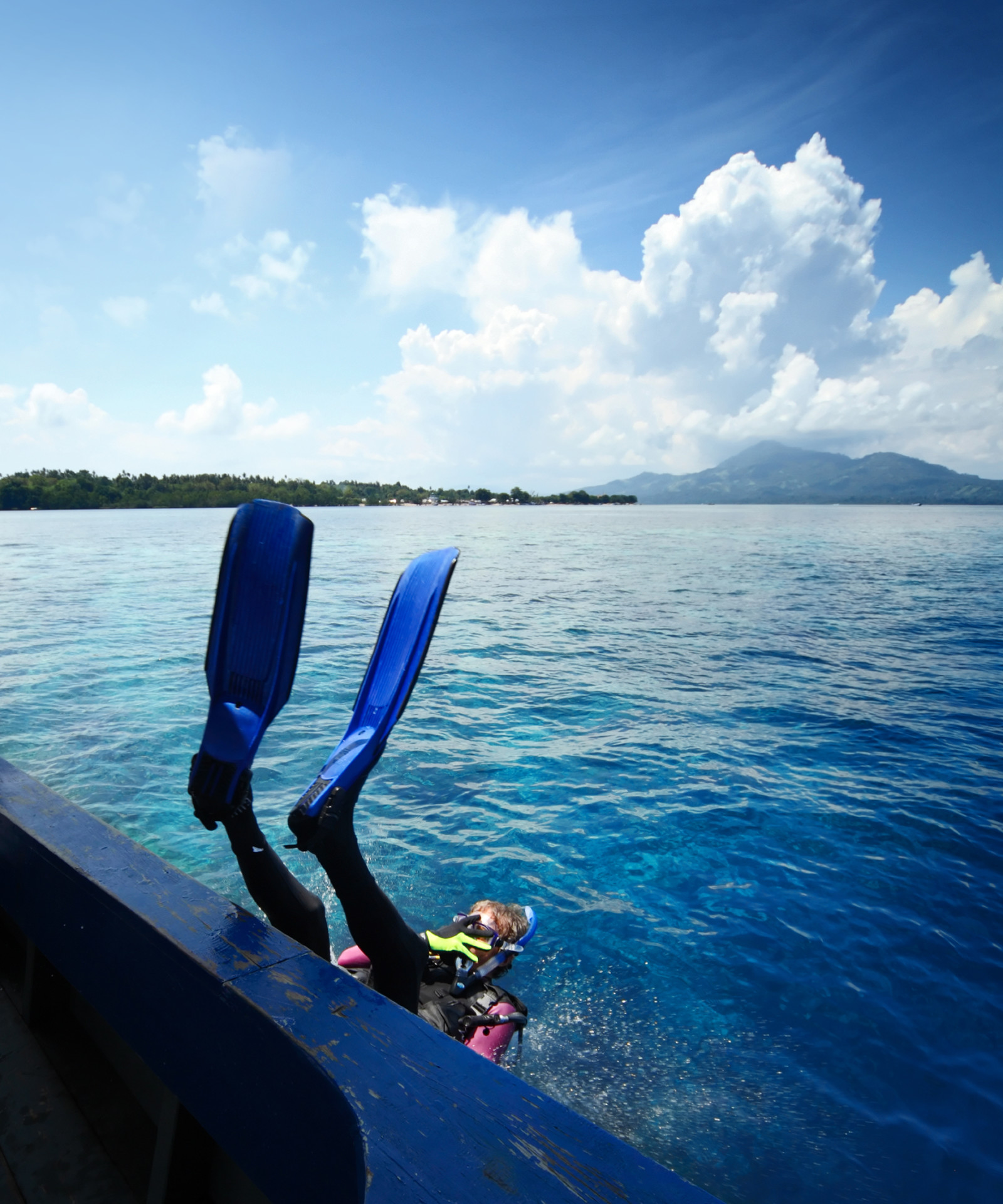
Why Do Scuba Divers Go in Backwards? (+3 Alternative Entries)
-
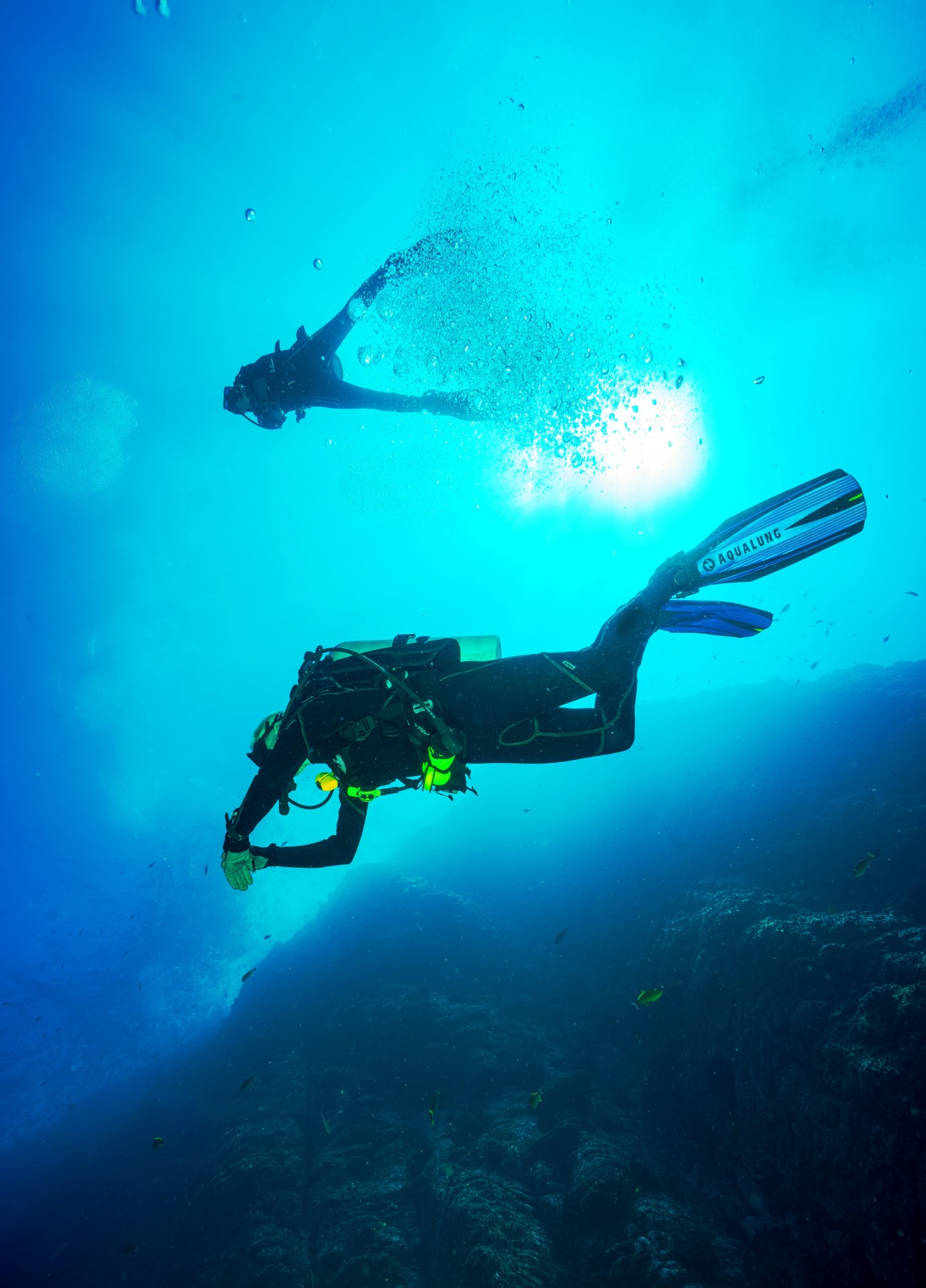
How Do Scuba Divers Sink and Float? (+Tips to Get It Right)

